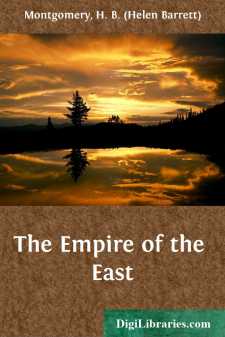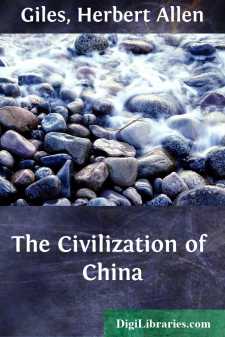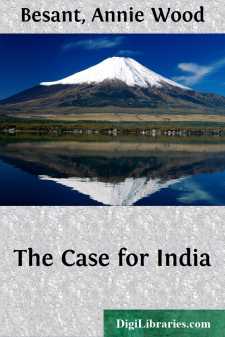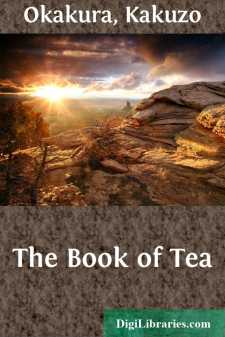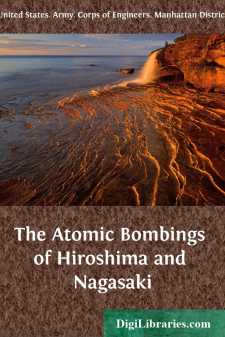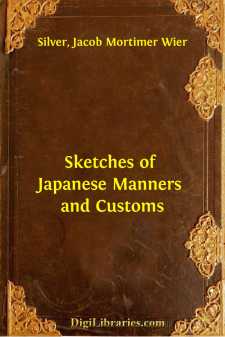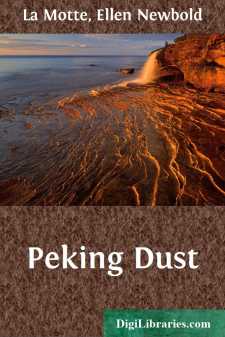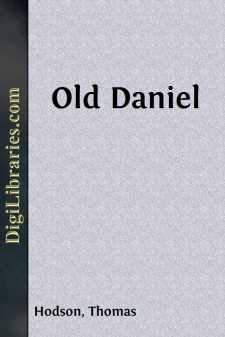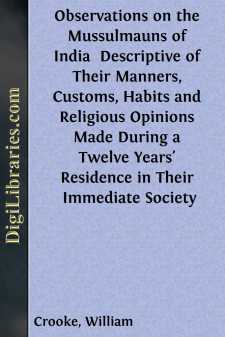History
- Africa 30
- Americas (North Central South West Indies) 50
- Ancient 68
- Asia
- Australia & New Zealand 8
- Canada 41
- Caribbean & West Indies 1
- Civilization 20
- Eastern Europe 12
- Europe 310
- Expeditions & Discoveries 60
- General 77
- Historical Geography 1
- Jewish 9
- Latin America 3
- Medieval 8
- Middle East 13
- Military 248
- Revolutionary 8
- Study & Teaching 5
- United States 353
- Western Europe 56
- World 13
Asia Books
Sort by:
by:
Tomas de Comyn
CHAPTER I [Difference from European time.] When the clock strikes twelve in Madrid, [1] it is 8 hours, 18 minutes, and 41 seconds past eight in the evening at Manila; that is to say, the latter city lies 124° 40' 15'' to the east of the former (7 hours, 54 minutes, 35 seconds from Paris). Some time ago, however, while the new year was being celebrated in Madrid, it was only New...
more...
PREFACE ON my return from another visit to Japan a few months ago I found those persons in this country with whom I was brought into close association extremely curious and strangely ignorant regarding that ancient Empire. Despite the multitude of books which have of late years been published about Japan and things Japanese a correct knowledge of the country and the people is, so far as I can judge,...
more...
CHAPTER I—THE FEUDAL AGE It is a very common thing now-a-days to meet people who are going to "China," which can be reached by the Siberian railway in fourteen or fifteen days. This brings us at once to the question—What is meant by the term China? Taken in its widest sense, the term includes Mongolia, Manchuria, Eastern Turkestan, Tibet, and the Eighteen Provinces, the whole being...
more...
CHAPTER I. PRE-WAR MILITARY EXPENDITURE. The Great War, into the whirlpool of which Nation after Nation has been drawn, has entered on its fourth year. The rigid censorship which has been established makes it impossible for any outside the circle of Governments to forecast its duration, but to me, speaking for a moment not as a politician but as a student of spiritual laws, to me its end is sure. For...
more...
by:
Kakuzo Okakura
I. The Cup of Humanity Tea began as a medicine and grew into a beverage. In China, in the eighth century, it entered the realm of poetry as one of the polite amusements. The fifteenth century saw Japan ennoble it into a religion of aestheticism—Teaism. Teaism is a cult founded on the adoration of the beautiful among the sordid facts of everyday existence. It inculcates purity and harmony, the mystery...
more...
FOREWORD This report describes the effects of the atomic bombs which were dropped on the Japanese cities of Hiroshima and Nagasaki on August 6 and 9, 1945, respectively. It summarizes all the authentic information that is available on damage to structures, injuries to personnel, morale effect, etc., which can be released at this time without prejudicing the security of the United States. This report...
more...
CHAPTER I. FESTIVALS AND HOLIDAYS. The first feature of Japanese life that prominently presents itself to the notice of the stranger, is the number of festivals and holidays held in honour of the various deities, warriors, and sages, or in accordance with some ancient custom of the county, which is as paramount an authority as the most stringent of its laws. Of these festivals, the...
more...
I POOR OLD CHINA When I came away last August, you said you wanted me to tell you about our travels, particularly about China. Like most Americans, you have a lurking sentimental feeling about China, a latent sympathy and interest based on colossal ignorance. Very well, I will write you as fully as I can. Two months ago my ignorance was fully as overwhelming as yours, but it is being rapidly dispelled....
more...
by:
Thomas Hodson
Preface. I can now, in my mind’s eye, see Chickka, the washerman, as if I had met him yesterday; and I can see the mud houses of Singonahully, the mud wall of the village, and the temple of Runga, as if they were all before me. Yet five and thirty years are passed and gone since the afternoon when, in quest of medical aid, I rode past the village, hoping yet to see it the abode of many follower’s...
more...
by:
William Crooke
INTRODUCTION Very little is known about the authoress of this interesting book. She is reticent about the affairs of her husband and of herself, and inquiries recently made at Lucknow, at the India Office, and in other likely quarters in England, have added little to the scanty information we possess about her. The family of her husband claimed to be of Sayyid origin, that is to say, to be descended...
more...



